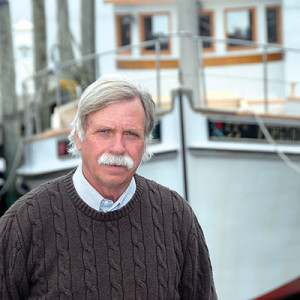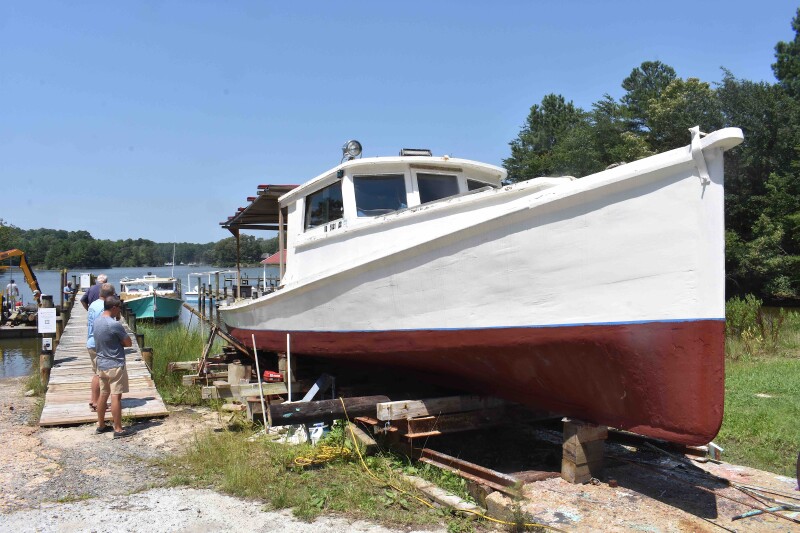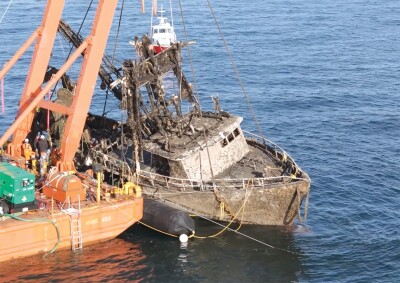Small neighborhood railways, once the lifeblood for maintaining commercial fishing boats up and down the Mid-Atlantic coast, are being replaced with motorized boat lifts.
A clear indication of this is in the advice given by longtime railwayman George Butler of Reedville, Va. to new railway owner Jeremy Clark of Sunrise Point Marina on Robinson Creek in Urbanna, Va. Clark called Butler in July for an on-site inspection of his railway, asking advice on what to do with it – fix it, or switch to a Travelift.
After the inspection, Butler said that the cost of fixing the railway will be expensive and could be higher than buying a used Travelift; that a motorized boat lift would best serve the marina because more boats can be hauled and serviced in a timely manner; and governmental agencies such as the Occupational Safety and Hazard Administration and local zoning departments bring restrictions and expenses that discourage the continuation of railways. (For more information, read “Off the rails - Mid-Atlantic yards make the transition to Travelifts,” June 2019, National Fisherman.)
The railway at Sunrise Point Marina plays a minor part in the marina’s business today, but once was the lifeblood of African-American wooden boat owners who lived close by when the railway was owned by Alex Burrell. A Black railwayman/boatbuilder, Burrell operated the facility for over 50 years. The long road leading to the railway is named Burrells Marina Road.
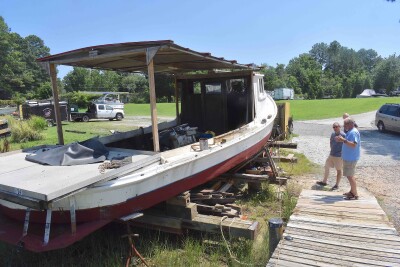
The era of racial segregation in Virginia was not just associated with restaurants, water fountains and schools. Railways often fell into that category too. There were also situations where African-American watermen were not served in same way as white-owned boat owners. White commercial and recreational fishermen were often first in line for service. Black fishermen were left to work on their boats up on the railway at peak harvest seasons, missing out on valuable fishing and oystering time on the river.
In Tidewater Virginia, as soon as the Civil War ended large numbers of whites and Blacks looked to the rivers and streams of Chesapeake Bay for sustenance and monetary gain. Even before slavery ended, free Blacks were working the water and establishing small segregated waterfront landings for maintenance and mooring of boats.
Former enslaved Black sailmakers, log canoe builders, shaft tong makers and railwaymen were apart of those neighborhood landings that were scattered up and down Tidewater Virginia rivers. The landings were often tucked away in areas on isolated creeks and coves.
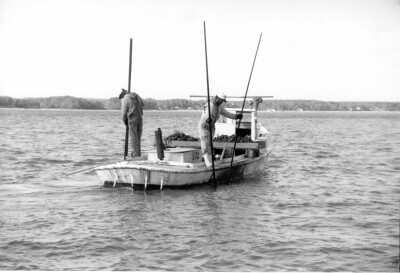
Alex Burrell ran his marina/railway in the 1940s, ‘50s, and ‘60s and provided railway and mooring accommodations for African-American watermen who worked the Rappahannock River in wooden log canoes and deadrise boats. The boats were used to harvest oysters, crabs, and fin-fish, and served a large Black clientele coming from the cities to go charter boat fishing.
“With everything else we have going on here at the marina, it does not look promising that we are going to be able to keep the railway,” says Clark in September. “The railway has a great history but we are leaning towards finding another way to haul boats and serve our current clientele.”
One by one, tidbits of Mid-Atlantic traditional maritime culture, such as that neighborhood railway, are lost to changing times.




